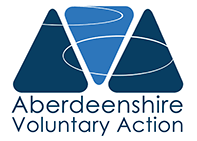Good Governance
Posted on
Good governance is vital to a successful organisation. AVA provides support and advice on governance and members are encouraged to contact our Governance Development Officer, Rhona Davidson who works with groups across Aberdeenshire.
Here's a summary of good governance good practice:
- Your committee are responsible for taking care of the organisation of your group. They are your governing body and everything that your committee does is referred to as governance.
- On the whole committee members will be volunteers and as such they will not receive payment for their duties. Travel expenses are usually the exception and occasional one-off payments for a particular job (if they are considered the best person to carry out that job) may be permissible, but in general it is not considered good practice. If your group is a registered charity then there are very specific guidelines about remuneration for Charity Trustees and you are advised to check this.
- Your committee or governing body are responsible for :-
- giving your group direction - planning its development, monitoring and reviewing progress
- keeping your group within the law - such as making sure that your group is registered for PVG checks if there are volunteers or staff who work closely and regularly with children
- managing people - recruiting and supporting volunteers/staff
- being accountable - ensuring your group has the appropriate policies and procedures in place and that the required reporting is carried out
- managing your group's resources - keeping financial records and abiding by grant conditions etc
- managing itself - ensuring regular and effective meetings and making sure that the committee work together for the good of the group as a whole
- Your group’s legal structure and whether or not you are registered as a charity, will largely dictate the legal responsibiities of your group. All committee members – your Directors or charity Trustees – have a legal obligation to make sure these duties are fulfilled.
- In theory anyone over the age of 16 years in Scotland could become a committee member although certain people are disbarred from joining the governing body of a registered charity or a Company Ltd by Guarantee or a Community Interest Company.
The Role of the Chairperson
Your Chairperson plays a key role in making the committee work together effectively . Most people assume that the chair is there simply to keep meetings in order, but the responsibilities of the Chairperson include much more than this.
Your group’s chair person has a managerial role within your group and should be the one to:
- liaise with the Treasurer and Secretary
- consult with committee members as necessary
- ensure that staff and volunteers are supervised and supported.
- take overall responsibility for legal, health and safety and insurance matters
- act as representative and spokesperson for the group
The Role of the Vice-Chairperson
The role of the Vice-Chairperson is to deputise for the Chairperson in their absence, adopting his or her responsibilities and authority, and to co-operate with the Chairperson to encourage and promote the work of the organisation and Management Committee.
The Role of the Secretary
Whilst the Chairperson is responsible for the smooth and fair running of your group, the Secretary is responsible for keeping people informed of the group’s activities and their main duty is the day-to-day running of the group. The exact work and the amount of work they are required to do, will depend on the size and nature of the organisation, on your group’s legal structure and whether or not you are a registered charity.
The Role of the Treasurer
A good Treasurer performs a vital PR role because how a group handles its finances has a direct bearing on how it is perceived both by the public and by funders. Sound financial management makes an organisation more credible and the role of the Treasurer all the more important.
The main duties are to keep accurate records of all financial transactions, both income and expenses, to manage petty cash, sign cheques and retain safe keeping of the cheque book. If your group is a Company Ltd by Guarantee, a Community Intertest Company, or if your group has charitable status, keeping the finances in order is a LEGAL duty.
Sub-committee groups
From time to time it may be appropriate for a committee to set up a sub group or steering group to develop a specific project or activity. For example, a community council may wish to consider undertaking a redevelopment project in its area, and as the new project begins to gather momentum and become a significant part of the community council's activity, it is time to consider setting up a sub group to manage and develop it, rather than allow the new project to occupy the time of the full committee. Similarly a sub group may be the best way of undertaking large-scale fundraising for a particular purpose.
Minutes of Meetings
Minutes are a record of what happened at a meeting. They document attendance, agreements reached, decisions made and actions to be taken. They also serve to inform committee members who were unable to attend, as well as the rest of the community, agencies etc., of the business covered at the meeting.
For a more information, contact Rhona on 07724617648 or email: Rhona.Davidson@avashire.org.uk
